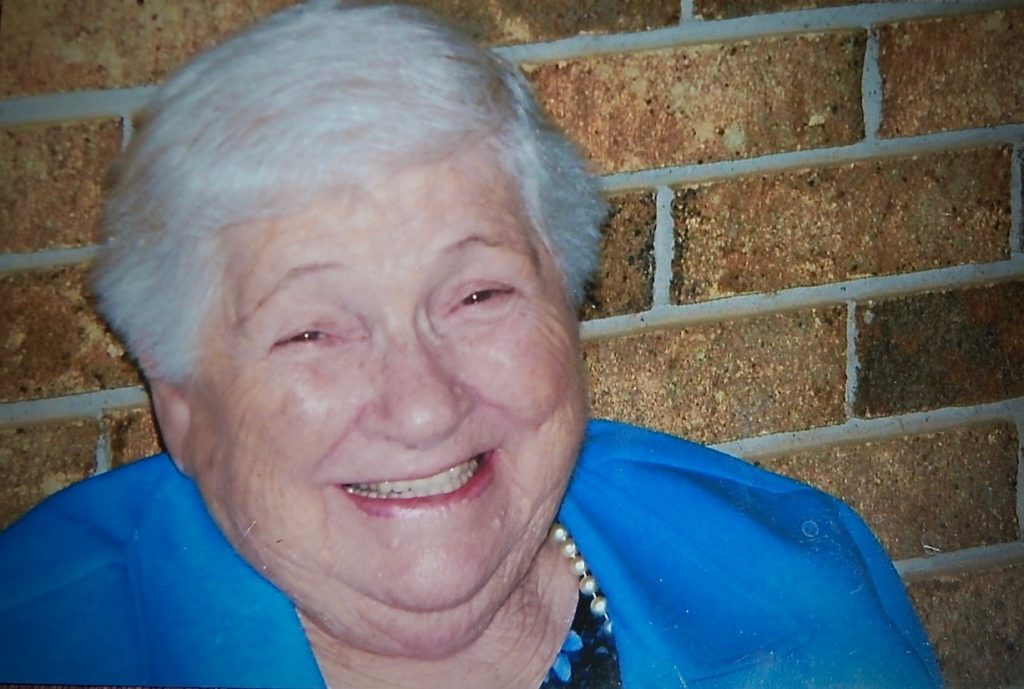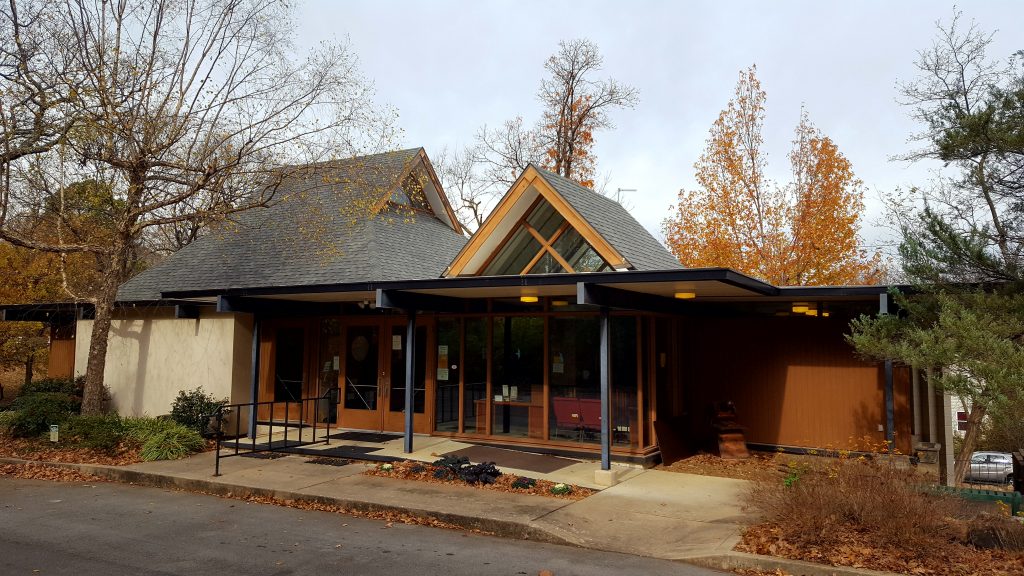2020 Gratitude Moment, by Leanda Gavin.
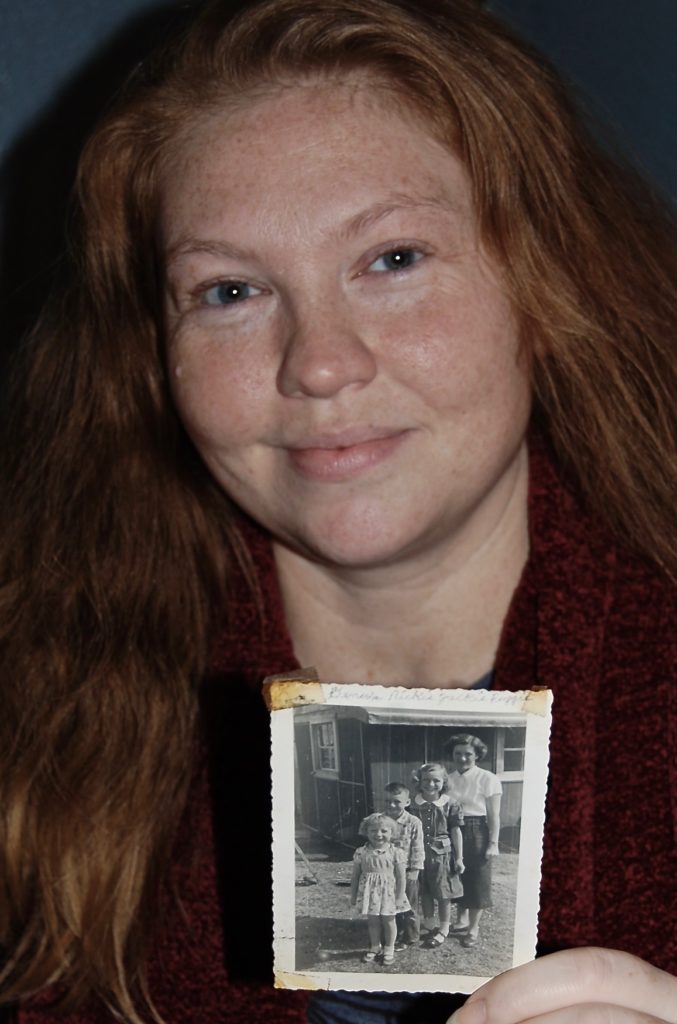
Geneva Adams Curry was born in 1922. She was Memaw to her family and their close friends.
A child of the Depression era, she had a deep appreciation for plentiful food and minimal waste. She kept a cabinet filled with old washed cool whip containers, mayonnaise, and pickle jars; even though she had a regular dish collection large enough to feed a small town. Many Sundays, she did indeed, cook enough food to feed the equivalent.
Beyond this, though, she was not like other grandmothers that I knew. She was, to be cliché, a bit of a force of nature.
She liked algebra and played basketball as a teenager at her one room schoolhouse deep in the wooded river bottoms of southeast Arkansas; an unusual combination of interests to indulge freely in for a girl in the 1930s.
This never changed. To my memory, she always did do just exactly as she wanted.
She and I, and later my second son, shared the genetic anomaly of red hair that obeys no law of gravity in its natural state, gifted to us by an ancestor no one could recall.
She married my grandfather, Leck, very young. Together they worked all over Arkansas, until they came back home to settle and begin a commercial farm operation together. When my grandfather died quite suddenly in the early 70s; my grandmother did not sell out or hire a farm manager. She singlehandedly ran that farm until she retired about 25 years later. And for a few more years yet, she was still a regular fixture by my uncle’s side after he bought it out.
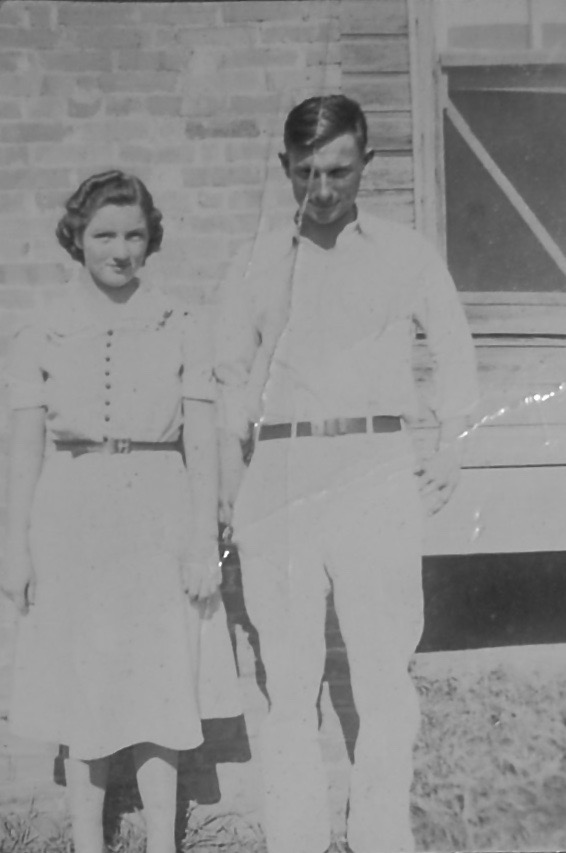
I can vividly remember driving up the road to see my grandmother, well into her 80s, using a wooden fencepost to wedge out her riding lawnmower stuck in the muddy mess her front yard would become after the river back-flowed into the hundreds of creeks, sloughs, and waterways the entire county melted into long after the storm was gone.
She, unlike my mother who had converted to a Jehovah’s Witness as a young adult, was a devout Methodist.
The dynamic of my family that existed then was that of debaters. We argued all the time; sometimes good-naturedly, sometimes heatedly about all things mundane, most of it probably, none of our collective business.
The first time we ever argued over something real though, my grandmother and I; I was an adult or close to it. It would become a defining moment in my life.
There is something in the deep south called “homecoming;” (I’m not sure this is a thing in other places, it’s not the football version). All the churches in the community come together at the local cemetery to do a dedication service. People come from out of town and there’s lunch and all that.
The community I grew up in is a large rural area and most folks are related in some way or another. So here, it’s at least two different denominations, and all the churches alternate having their own ministers preside. This particular year, it was the Methodists’ turn.
Also, this particular year, sometime in the early 2000s, these Methodists’ had their very first ever, female minister.
I worked at the local general store at the time, so I heard just about everything that went on in every corner of the community, including the grumbling about the “lady minister down at Union.” This was not something that was too much on my radar. I was probably 19, not a Methodist, nor did not I belong to a church that participated in homecoming. I did pay attention though, when the grumbling started to turn to a bit of a mutiny. Though I don’t know the exact sequence of events from the beginning to the end, the results had the female Methodist minister bow out and defer to one of the male Baptist ministers that year, to keep the peace.
When I came to visit my grandmother later as I did most afternoons, I vaguely snorted from behind the newspaper I was browsing my disdain that the Methodists had backed down. Then, I probably jokingly questioned how she (my grandmother) let a thing like that happen.
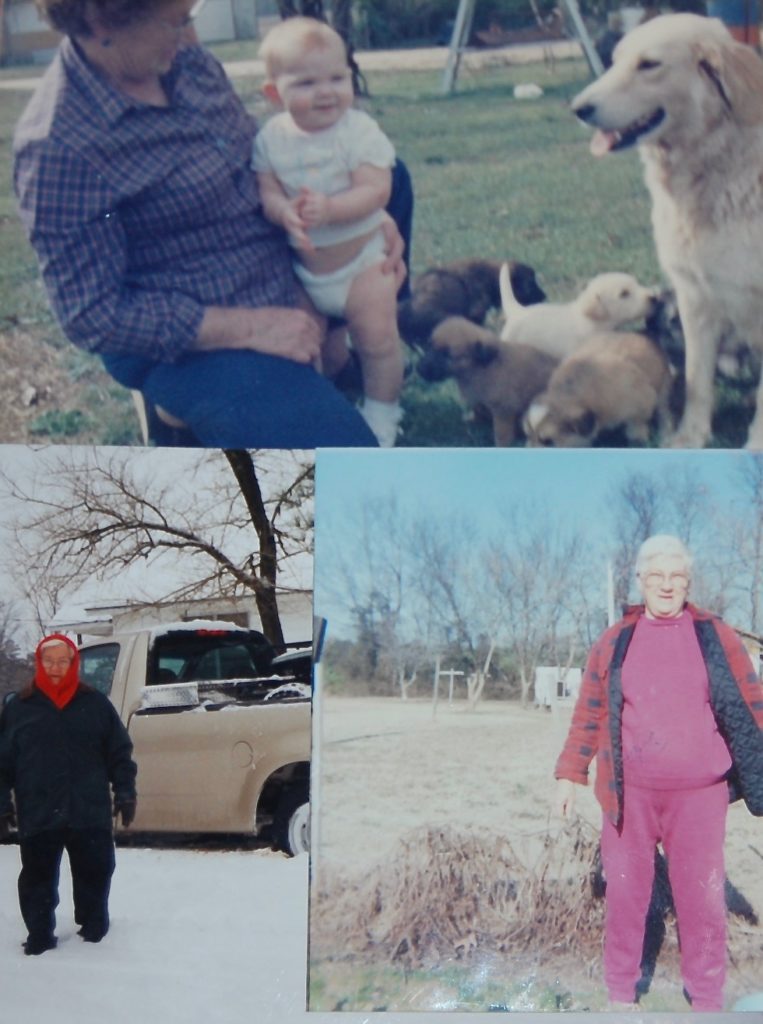
I nearly dropped the newspaper when she vehemently defended the rebuke from the wider community. She believed the minister’s gracious step-aside was the least she could do; and I could tell that my grandmother’s general opinion of this lady as the leader of her own church was just barely palatable. Our ensuing argument wasn’t pretty, and I marched back home across the road, doors slamming, furious, about my grandmother’s shockingly outdated position that did not even concern me.
Except, it did.
I had already started to wrestle with my complacence in the life I had chosen. I had made the decision to live my life as I had been raised, as a Jehovah’s Witness, even though my private thoughts and beliefs often conflicted with traditional teachings. But here, my future children would have an enormous, heavily involved adoptive family. It was a little weird to the wider world sometimes, but it wasn’t a bad way to grow up in my limited perspective of the world then.
To complicate things, I was expecting my oldest son, Connor, about this time though, and the reality of the how I was comfortable raising up another human was quickly fracturing away from the life I had decided was best for him when I was a young teenage girl.
When I was around 17 years old, the weather took a neurotic swing one day, as it commonly does in that area. It came on too quickly to outrun. We were all each other’s only neighbors down an isolated country road: myself, my grandmother, and my uncle’s family. We all gathered at my uncle’s to wait it out.
I watched my grandmother stand on the end of my uncle’s porch, hands on her hips, chin up, eyes narrowed, long after everyone else went to huddle inside. There she stood. Even after the hair-raising sound of thousands of chickens, who seemed to know what was coming and had been screeching in unearthly unison, abruptly cut off in a single second. After the chickens quieted, the eerie silence and stillness that followed still did not sway her. She stood there as the silence was engulfed in slow motion by a roar, and the funnel spiraled into view from the river bottoms to the south. She watched calmly as it began to snake its way around the edge of the property, skirting the buildings where the chickens were housed. She stood there, in that place staring down at that tornado, until it snaked its way past the chickens just missing them; and as it began closing the distance to halfway between the chickens and where she stood.
So, my grandmother, with no fear of the natural world, never one to back down, independently successful at running a farm and a family, who would outlive 2 of her 3 children, always quick to tell you exactly where you stood, studied her devotional texts over breakfast every morning, had been taught, and still believed; that in some fold of the universe that she and half of the world were lesser-than.
It is not something I would in good conscience, ever pass on to my children. Though my path here to UUFF had many starts and stops and winding turns; this single argument with my grandmother was quite possibly, the spark that lit the fuse of the version of myself that ended up here.
I am grateful.
I am grateful for this Fellowship and the company of others who have sought their own paths in a community where all our individual roads wind and intersect as they will. I am grateful to live in a progressive piece of a largely less progressive state and proud to be part of a community that values people as they are. We are lucky to have each other here, UU communities become much harder to find outside of the largest cities in Arkansas.
Our community has evolved into something new since last March, and will continue to do so through at least May of next year for the safety of all. Even so, we still retain many of the same expenses that we had while meeting in person. The building and grounds still need to be maintained, the utilities need to operate to support our staff, who in turn still need to be paid. Their work may have changed slightly, but it has not stopped. If anything, it has become more challenging to navigate church in this brand-new world.
They have all adapted beautifully and have done spectacular things to bring us these services and other aspects of a “normal” fellowship experience. For them, I am grateful.
Joe Euculano and Ines Polonius are heading up our Annual Stewardship Drive this year. I also have a heavy amount of gratitude for these two, because this is a lot of work and organization. Please touch base with them if you have any questions about the pledge drive, or if you don’t, you can simply mail your completed forms to Fawn in the office.
I think of my grandmother often. She was many things: a mom, a wife, a farmer, a grandmother, a great cook, a cancer survivor. She loved rocking babies, fishing, crocheting, her cat(s), traveling, and being outdoors. She was not perfect. And even as her skeleton began to crumble within her, and her heart began to tire, and her mind begin to fade in and out, the Geneva I always see in my mind’s eye is the one I remember standing on that porch, staring defiantly down at a tornado as if she could will it to dissolve into placid wind right at her feet. She was no one’s inferior.
For her existence, I am grateful.
And although I cannot say that the person that my mother was when I last knew her at 16, or that my grandmother was when I last knew her at 27, would be proud of the person I am, the lifestyle I lead, or the children that I have raised today; I am fine with the knowledge that they might not be.
The gifts they have left me with transcend any disagreements we may have had when our bodies and minds were alive together. Through their values and actions, intentional or not; they left me with a spirit of independence, a deep love of free thought, and the value of knowing the difference between what is easy and what is right.
It is this way with those that we love. They may love us back or they not. They may lift us up or fail us. They may support us unconditionally, or they may hurt and disappoint us in deep and unfathomable ways. They may do all these things simultaneously. Just as we, ourselves, may do to this to others.
These collective experiences, whether we embrace or rebel from what those we love have passed on, have made us who we are. We carry them with us in this way. Sometimes it is painful. But for all of this, I am grateful.
